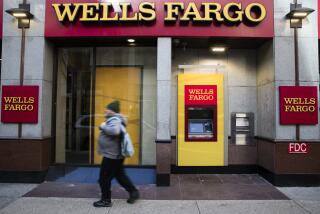Taxing Y2K Concerns Alter Fund Schedules
- Share via
There may be one less reason for mutual fund investors to stay on the sidelines this fourth quarter: taxes.
A number of the nation’s biggest mutual fund companies, including Janus, Alliance Capital and Invesco, say their funds will speed up annual capital gains distributions this year in part out of concerns investors may have about the year 2000 computer bug. And some of this year’s hottest funds say they expect no distributions at all.
Traditionally, mutual funds distribute year-end gains in the last week of December. But because investors may feel uncomfortable making transactions that close to Dec. 31, some fund companies are moving up their distribution dates by a week or two. Others, like Boston-based John Hancock Funds, are pushing them up to November.
Still others are considering speeding up distributions, including the Van Eck Global funds and Dreyfus.
In the meantime, several foreign emerging markets, and natural resources sector funds--among the best performers year to date--say they do not anticipate making capital gains distributions for the remainder of the year (and if they do, the distributions would be negligible).
Among them: $146-million American Century Global Growth; $96-million Strong Asia Pacific; $58-million American Century Emerging Markets; $31-million RS Global Natural Resources; $10.4-million Sit Developing Markets Growth; and all of Guinness Flight’s Asia and Internet stock funds.
Typically, funds with big returns tend to throw off big tax bills as they realize gains by selling stocks at a profit. However, since many of these funds struggled coming into this year, they are carrying forward capital losses from previous years that can be used to offset gains, fund analysts note.
“The emerging markets funds in general have such large losses built up that they ought to have a free ride for a couple of years,” said Russel Kinnel, equity editor for fund tracker Morningstar Inc. in Chicago.
As taxes have become a bigger issue in recent years, a growing number of investors have put off making new investments into stock funds in the final months of the year for fear of stepping into an immediate capital gains bill.
Mutual funds are required to distribute to shareholders any gains they’ve realized during the year. Shareholders new to a fund must also bear this burden.
As an example, let’s say an investor puts $10,000 into a fund a week before it’s due to distribute its gains. If the fund has a net asset value per share of $20, that investor would receive 500 shares. Now, a week passes and the fund distributes gains of $2 a share to its investors. The distribution would reduce the fund’s NAV to $18 per share. Even if that investor reinvests those gains (which would earn an additional 56 shares), he or she would still be liable for taxes on that $1,000 distribution (500 shares multiplied by distributions of $2 a share).
By waiting a week until after the distribution is made, however, the investor would avoid the immediate tax hit and would instead receive 556 shares of the fund at an NAV of $18 per share.
The fact that some top-performing funds won’t be distributing gains this year while others will be making them earlier “might alleviate some investor delays,” said Steve Savage, editor of the No-Load Fund Analyst newsletter in Orinda, Calif.
Earlier this year, the Securities Industry Assn. and Investment Company Institute trade groups suggested that fund companies consider moving up capital gains distribution to ease Y2K concerns.
“It certainly behooves folks to give fund companies a call” to find out if the funds they’re thinking of investing in plan to make capital gains distributions this year, Savage said.
Even the funds that say they don’t anticipate capital gains distributions this year urge investors to call before investing.
“These are estimates,” said James Atkinson, head of Guinness’ Pasadena-based U.S. operations. “Things can change at the last minute.” For instance, last-minute selling by shareholders may force some funds to sell stocks to meet those redemptions--potentially realizing additional gains.
*
Times staff writer Paul J. Lim can be reached at paul.lim@latimes.com.
(BEGIN TEXT OF INFOBOX / INFOGRAPHIC)
Duty-Free
A number of the top-performing emerging-markets funds say they do not anticipate making any capital gains distributions for the remainder of this year. If they do, fund officials say, the distributions should be negligible. The reason: Many of these funds, including those listed below, are carrying forward steep losses sustained in previous years to offset gains.
*--*
YTD 1998 1997 Fund name Total return Total return Total return Strong Asia Pacific 54.4 -3.1 -31.0 American Century Emerging Mkt. 45.4 -18.9 NA Sit Developing Markets Growth 28.8 -24.9 -5.2 Guinness Flight China 27.9 -15.3 -20.3 American Century Global Growth 27.8 NA NA Guinness Flight Asia Small Cap 23.2 -30.8 -30.8 Guinness Flight Asia Blue Chip 21.9 -11.8 -37.7
*--*
NA=Not applicable YTD=Year to date
Source: Morningstar Inc.
More to Read
Inside the business of entertainment
The Wide Shot brings you news, analysis and insights on everything from streaming wars to production — and what it all means for the future.
You may occasionally receive promotional content from the Los Angeles Times.










